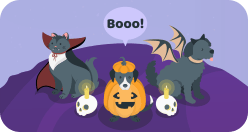When the original game came out a decade ago, it became instantly iconic. Fans and game analysts would rate it "the greatest" in raving reviews and endless lists of "Top 10 Games That…" (yours truly, a budding paper writer back then, wrote her share of opinionated listicles, too). Critics would dote on it for gameplay, visuals, sound design, and thoughtful treatment of female characters. Game designers would rejoice that finally, FINALLY, they have proof that video games can be a form of art. Moreover, a financially successful AAA blockbuster game can be a piece of art.
Yet, if you didn't play video games, you probably missed the hype. However, what you shouldn't miss, is the current HBO reimagining of The Last of Us as the series of the same name. Why?
The Last of Us is a narrative-driven game that explores complex themes. The story doesn't lose (maybe even gains quite a lot) by being translated into the new medium.
It asks difficult moral questions
As a rule, when a film/TV adaptation goes out, it falls into one of two categories. First, it can cater to the hard-core fans who cheer every new addition to the canon. Alternatively, it can appeal to the broadest possible audience, thus creating a popular franchise only loosely connected with its video game namesake (I'm looking at you, Resident Evil). Yet The Last of Us is an exception for many reasons. The main one – it was always about the message.
Neil Druckmann, Naughty Dog's Co-President and co-creator of the original game, who also worked on HBO's rendition of The Last of Us story, said as much in his interview with Washington Post Live. He remembered the moment they first started discussing The Last of Us concept at Naughty Dog. According to Duckmann, they wanted to create "the experience of the unconditional love parents feel for their child" and all the joy, fear, and pain that comes with it. "When you look at the world we live in, some of the greatest things and some of the most horrible things come from that feeling of love. And to me, The Last of Us has always been the exploration of THAT."
Given that HBO's The Last of Us is run by Craig Mazin, who has honed his skills in depicting bleak realities and moral choices while working on Chernobyl, and Neil Druckmann himself, we are likely to get just what we bargain for: an adaptation that is faithful to its source material in essence and tone.
It's not your typical zombie apocalypse survival horror
Zombies (or "Infected" as they are called in the world of TLOU) aren't the main point. It's not a horror show about a pandemic. It's about what happens after. The Last of Us merely uses a bleak, dystopian vision of the world as a backdrop to explore the dark side of the human condition. It's about people and relationships.
The authors took an artistic approach to the theme – and I don't mean visuals, which are as cinematically stunning now as they felt back in 2013. Instead of making a game entertaining with the dark theme purely for ambiance and esthetic purposes, they laid an exploration of some uncomfortable moral questions at the very core of the gameplay – and the series follows this suit seamlessly, without the need to change anything.
This game had made players uncomfortable. It made you ponder the nature of violence, love, grief, and vengeance. And if that sounds like your typical premise for a post-apocalyptic game, it's only surface-level. The Last of Us didn't go like, "You loved this person, you lost them. You are now bereaved and motivated by vengeance. Now, let's kick some ass! Huzzah!" That, indeed, would be tacky and trite. Instead, it showed you the horrible things people do to other people to survive and protect their loved ones.
The Last of Us didn't give you dehumanized enemies that are "fun" to destroy. It asked you, as a player, to inflict violence on individuals with their own motivations, struggles, and loved ones to protect, who just happened to be locked in the life-or-death situations against Joel and Ellie. Most of the time, your choice to inflict violence was justifiable, but it didn't make you feel any better. It wasn't pretty, and it wasn't fun – because violence is neither, no matter the motives.
These off-putting features of the gameplay were part of the message. You might have squirmed, but you couldn't look away from the gaping consequences of your decisions.
The series gives you more than the game
At first glance, the series is faithful to its source material to the fault. Even the show's episodes with their emotional cliffhangers follow the crucial parts of the game naturally.
However, the TV format gives more opportunities to explore all the things that were always meant to be there but could not be shoehorned into the video game medium. Mainly, the series lets you in on the full-fledged stories of the side characters, previously obscured because players were supposed to see the world through Joel and Ellie as the point-of-view characters. Druckmann says that the ability to move the camera around free from Joel's and Ellie's perspectives was thrilling because it allowed showing the viewer some precious world-building details, characters, and stories that the player never got to see. Not only this gives more life to the world, but it also imparts more depth and poignancy to the conflicts onscreen. When your enemies aren't just "obstacles" but complex human beings who, just like yourself, are trying to survive in this shattered world, things get terrifyingly real.
The series also allows more space for dialogue between the leads than the action-packed game ever could. This adds more nuance to their relationship, as they warm towards each other, coming from complete emotional shutdown to forming a strong bond. Moreover, we get to see more of the performance, including the facial expressions of Joel and Ellie as they react to the action unfolding, which is not always visible between the cut scenes. Druckmann is glad to explore the possibilities this entails: "Some of the best storytelling sometimes in passive media – I mean TV and film – is scenes that don't have any dialog, and it is just about reading a person's expression."
Speaking of this, I must add that Pedro Pascal and Bella Ramsey are brilliant choices for these roles. Bella Ramsey (Lyanna Mormont in Game of Thrones) has experience portraying a young girl born into the broken, cruel world and has both the necessary wide-eyed innocence and grittiness. Pascal is great in everything (most recently in Mandalorian) and delivers an emotional performance at the gut-wrenching beginning of The Last of Us giving credibility to Joel's detachment that stems from deeply harbored heartache. In addition, between themselves, the leads have the right chemistry that works beautifully onscreen.
It's much more accurate and terrifying than you would expect
Of course, in the post-pandemic world, a series about a disease decimating the population and ruining life as people know it hits hard. Yet as we have already established, the show is not about a pandemic.
No. I mean that the central horror element of The Last of Us is grounded in reality. The interesting twist on the zombie canon, where people turned into ravenous cannibals not because of a virus, bacteria, or some supernatural forces but by a fungus, isn't outright impossible.
Years back, I was seriously frightened by the genuine dangers of fungi when I learned that they are the leading cause of death for people whose immune system is severely suppressed, for example, for people with AIDS. In fact, fungal diseases kill 1.3 million people each year.
Yes. Fungi are all around us, and they can eat us alive as soon as they find a way to switch off our immune system response. Or, as a character of Dr. Neuman during a flashback to 1968 in the episode's opening scene informs us, when they will have a reason for evolving to withstand higher temperatures: "What if, for instance, the world were to get slightly warmer?" And as we all know, the Earth does get warmer at an alarming rate.
If this didn't send shivers down your spine, here's the kicker: cordyceps actually exists and has a very similar effect. Luckily for us, it affects primarily insects – at least, yet. There are many types of cordyceps fungi, but the one that The Last of Us takes its chilling narrative from is called Ophiocordyceps unilateralis and preys on ants. When its spores infect an ant, the fungus hijacks the insect's motor functions. It releases chemicals that make an ant climb an elevated plant stem where conditions are perfect for fungi to flourish and bite into the stem, paralyzing its jaws forever. Here the ant dies slowly as cordyceps makes its way through the body, bursts through the head, and develops spores that rain down on the ant colony members going about their business below.
As Ed Yong, a science journalist awarded the Pulitzer Prize for Explanatory Reporting for his coverage of the COVID-19 pandemic, describes it, "the ant ends its life as a prisoner in its own body. Its brain is still in the driver's seat, but the fungus has the wheel."
Are you terrified yet? Okay, the science says that you probably shouldn't be. For example, Dr. Charissa de Bekker, a mycologist and an expert in parasite-host interactions, says that fungi usually specialize in a single species. They don't "just jump from one ant species to another, let alone from an ant species to another insect." Humans would be an impossible distance away to cover, so we can breathe easy for now.
Still, it is an interesting theme to explore as a thought experiment and a possible (even if highly improbable) threat to humanity.
You don't miss out on anything if you haven't played it
Finally, numerous fans of the game that have been playing it over and over and know the dialogue by heart tell that you don't have to follow their suit to enjoy the HBO series. The familiarity with the TLOU world through the game isn't a prerequisite, nor does it give more depth to the drama you see. Of course, the trained eye catches some Easter eggs referencing the game's storytelling, like made-for-fiction movie posters and costume changes. Yet according to Gene Park, a reporter covering video games and gaming culture for The Washington Post, these details don't hold "some secret contextual key to the show."
So go ahead and have fun watching the series that is guaranteed to become a show everyone talks about. At least, as much fun as you can, given the bleak nature of the franchise and the uncomfortable questions it asks.










